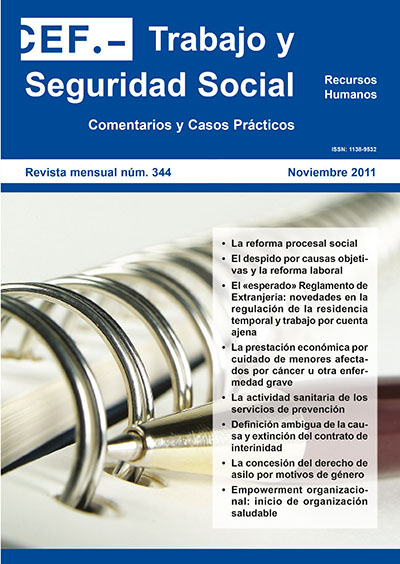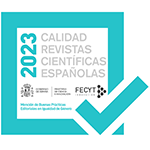The economic feature for care of of children affected by cancer or another serious disease
DOI:
https://doi.org/10.51302/rtss.2011.5091Keywords:
benefit, taken care of of children, cancer, serious diseaseAbstract
The «economic feature for care of of children affected by cancer or another serious disease» is the new benefit of Social Security which has been established in Spain and which is applicable from the 1 of January of 2011. It is a new extension of the protective action of the Social Security which extends to the group of people who have a child in his charge in the circumstances which the own demomination of the benefit describes. They are its beneficiaries the parents or persons in adopting or fostering children affected by the aforementioned disease or another serious.
The provision presents various peculiarities with respect to others, such as is the requirement that both parents, adoptive or foster of the child concerned, they are working and are discharged in the Social Security or mutual corresponding to their professional activity.
In this regard, it should be remembered that a periodic benefit temporary nature contributory and does not seek both compensate the beneficiary by the lack of sufficient financial resource, but to compensate him with a replacement income of salary that leaves collect the beneficiary for the reduction of working hours with a minimum of 50%, that it is dedicated to caring for the child.
Finally, there are many questions, as well as some measures under discussion arising from the new economic provision in the regulations, that interest shall be subject to comment on the pages below.


















